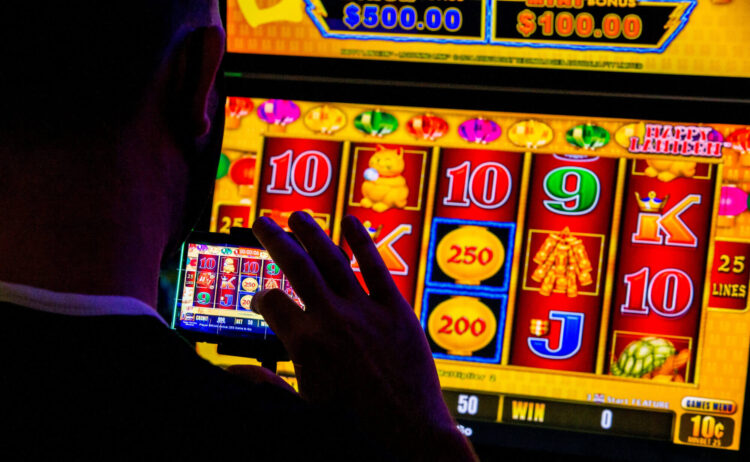Slot machines have captured the attention of millions. Some players view them as a quick way to make money. Others see them as an entertaining distraction. But behind the spinning reels lies a complex system known as Random Number Generator (RNG). This system controls every outcome. The question arises: are you engaging in a fair game, or merely contributing to the casino’s profits?
Page Contents
The Basics of RNG
At the heart of every slot machine lies the RNG. It is a computer program. It generates numbers continuously. Even when no one is actively playing, the generator keeps running. The generated numbers correspond to the symbols on the reels. This process determines the outcome of each spin.
Many players believe that they can predict or influence the results. But the RNG makes this impossible. Each spin stands alone. Previous spins have no impact. It ensures that outcomes are random, or at least as random as a computer program can be.
Playing Slots: Game or Fundraiser?

Source: www.gamblingsites.org
When you engage with a slot machine, you are not just playing a game. You are participating in a carefully designed experience. Casinos rely on the RNG to maintain the illusion of fairness. Yet, the house edge ensures that, over time, the casino will profit. It does not matter how random this generator is. The design of the slot machine ensures that the odds favor the house.
Many players fall into the trap of thinking they can beat the system. They believe that certain strategies or patterns will lead to success. In reality, each spin is an independent event. The RNG makes sure of that. No amount of skill or strategy can change the inherent odds.
Are Free Slots Any Different?
The main difference lies in the stakes. With free slots, no real money is involved. This allows players to experience the mechanics without risking their own funds. They use the same RNG technology as paid versions.
However, the psychology remains the same. Whether playing for free or for money, the RNG creates the same experience. Players often find themselves drawn in, believing that a big win is just around the corner. The reality is that the random number generator continues to operate in the same manner, regardless of the stakes.
Exploring Online Slot Platforms
Online slots have revolutionized the way players experience casino games, offering accessibility and endless options at their fingertips. But do they truly differ from traditional machines, or are the same principles at play? Let’s examine how platforms like pgslot implement RNG technology and what it means for the player’s experience.
Such platforms have gained popularity for offering convenience and variety. They also use RNG technology to ensure that outcomes are unpredictable, just like their physical counterparts. Whether you are spinning the reels in a land-based casino or online, the fundamental mechanics remain the same. RNG ensures randomness, but the house edge persists, meaning that the odds are still stacked in favor of the platform.
The House Always Wins

Source: cdn.mejsc4.com
The RNG ensures that each spin is unpredictable. Yet, the odds are always stacked in the house’s favor. Slots are designed to return a percentage of money wagered to players, known as the Return to Player (RTP). But this percentage is always less than 100%. This means that, over time, players will lose more than they win.
Many players chase losses, hoping that a big win will cover their losses. But the RNG does not care about past losses or future hopes. It operates independently. The longer you play, the more likely you are to contribute to the casino’s profits. The random number generator, combined with the house edge, ensures this outcome.
The Psychology of Slots

Source: playatgila.com
Slots are not just about RNG and odds. The experience is carefully crafted to keep players engaged. Bright lights, exciting sounds, and near-miss experiences all play a role. These elements keep players hooked, encouraging them to continue spinning the reels.
The RNG plays a role here as well. It creates the illusion of near-misses, where symbols almost align for a big win. This keeps players believing that the next spin could be the one. But in reality, it does not favor anyone. It only ensures randomness.
Conclusion
When you engage with a slot machine, you are not just participating in a game. You are entering a system designed to take your money. The RNG ensures fairness in the sense that each spin is random. But the design of the slot machine, combined with the house edge, ensures that the casino profits in the long run.
Free slots offer an opportunity to experience the mechanics without financial risk. But the psychology remains the same. So, the next time you sit down at a slot machine, consider what you are really doing. Are you playing a game, or are you just contributing to the casino’s renovation? The answer lies in the design of the slot machine and the power of the RNG.




